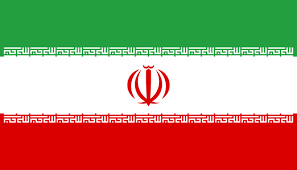Difference between revisions of "Language/Iranian-persian/Grammar/Conditional-Mood"
< Language | Iranian-persian | Grammar
Jump to navigation
Jump to search
m (GrimPixel moved page Language/Iranian-persian/Grammar/Conditional-Tense to Language/Iranian-persian/Grammar/Conditional-Mood) |
|||
| Line 1: | Line 1: | ||
In this lesson, we will learn how to use of the conditional mood in Iranian Persian. The conditional mood is used to talk about hypothetical situations or events that might occur in the future. | |||
== Formation == | |||
The conditional mood in Iranian Persian is formed using the verb "بود" (bud) and the past tense form of the main verb. The past tense form is usually the simple past tense form. For example, the conditional form of the verb "کردن" (kardan), which means "to do," is "کرد" (karad) in the simple past tense. | |||
=== Examples === | |||
# If I had time, I would visit my grandparents. (اگر زمان داشتم، به جدایی عمو و عمه خودم میخواهم.) | |||
# If you studied more, you would have passed the exam. (اگر بیشتر بخوانی، امتحان را میگذرانید.) | |||
# If it rains tomorrow, we will stay at home. (اگر روز بعد بارانی باشد، در خانه ماندهایم.) | |||
== Use == | |||
It is important to note that the conditional form is only used to describe the hypothetical situation, while the present tense is used to describe the result of that hypothetical situation. | |||
Examples: | |||
# If I win the lottery, I will buy a house. (اگر برنده شراب باشم، خانه خریدارم.) | |||
# If it snows tomorrow, we will go skiing. (اگر روز بعد برف باشد، به اسکی برویم.) | |||
# If you study hard, you will get good grades. (اگر با تلاش بخوانی، نمرات خوبی خواهی داشت.) | |||
[[File:Persian-Language-PolyglotClub.png|thumb]] | [[File:Persian-Language-PolyglotClub.png|thumb]] | ||
== Examples == | |||
{| class="wikitable" | {| class="wikitable" | ||
! | !English | ||
! | !Persian | ||
|- | |- | ||
|If I go there, I will meet them | |If I go there, I will meet them | ||
|اگر به آنجا بروم ،آنها را خواهم دید | |اگر به آنجا بروم ،آنها را خواهم دید | ||
|- | |- | ||
|If you study, you will learn | |If you study, you will learn | ||
|اگر مطالعه کنی ،یاد خواهی گرفت | |اگر مطالعه کنی ،یاد خواهی گرفت | ||
|} | |} | ||
if=اگر | |||
* if =اگر | |||
Revision as of 21:32, 10 February 2023
In this lesson, we will learn how to use of the conditional mood in Iranian Persian. The conditional mood is used to talk about hypothetical situations or events that might occur in the future.
Formation
The conditional mood in Iranian Persian is formed using the verb "بود" (bud) and the past tense form of the main verb. The past tense form is usually the simple past tense form. For example, the conditional form of the verb "کردن" (kardan), which means "to do," is "کرد" (karad) in the simple past tense.
Examples
- If I had time, I would visit my grandparents. (اگر زمان داشتم، به جدایی عمو و عمه خودم میخواهم.)
- If you studied more, you would have passed the exam. (اگر بیشتر بخوانی، امتحان را میگذرانید.)
- If it rains tomorrow, we will stay at home. (اگر روز بعد بارانی باشد، در خانه ماندهایم.)
Use
It is important to note that the conditional form is only used to describe the hypothetical situation, while the present tense is used to describe the result of that hypothetical situation.
Examples:
- If I win the lottery, I will buy a house. (اگر برنده شراب باشم، خانه خریدارم.)
- If it snows tomorrow, we will go skiing. (اگر روز بعد برف باشد، به اسکی برویم.)
- If you study hard, you will get good grades. (اگر با تلاش بخوانی، نمرات خوبی خواهی داشت.)
Examples
| English | Persian |
|---|---|
| If I go there, I will meet them | اگر به آنجا بروم ،آنها را خواهم دید |
| If you study, you will learn | اگر مطالعه کنی ،یاد خواهی گرفت |
- if =اگر
